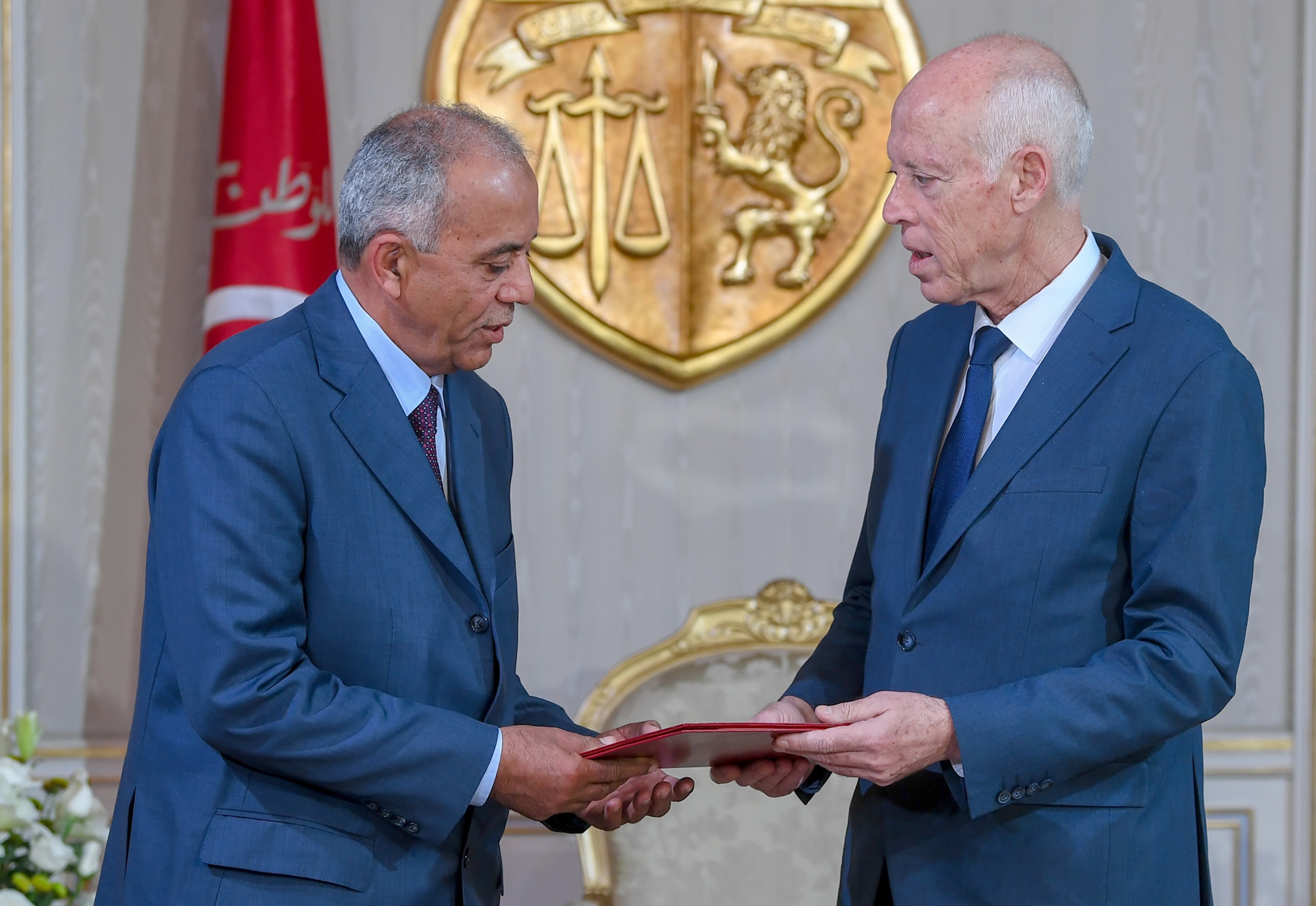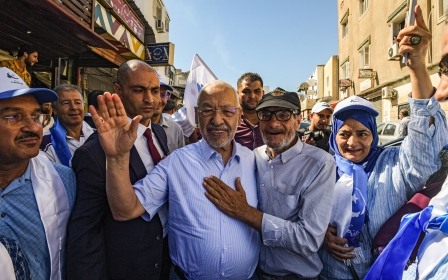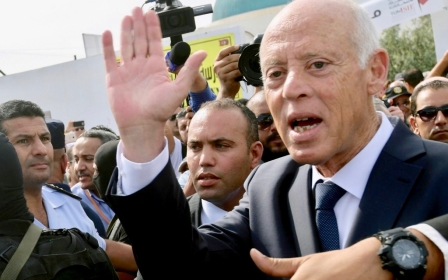Tunisia's president tasks Habib Jemli with forming new government

Tunisia's president has tasked Habib Jemli, an agricultural engineer who describes himself as an independent, with forming a new government.
President Kais Saied made the decision after Ennahdha's veteran leader, Rached Ghannouchi, presented Jemli for the post of prime minister when they met on Friday, state news agency TAP reported.
Jemli, 60, has been given one month, with the potential to renew for another month, to form a coalition government. If he cannot form the coalition, the president can ask another party to try.
If that also fails and a deadlock persists, there will be another parliamentary election.
"The future government will serve the people's will … and will be formed based on competence and integrity, regardless of political affiliation," Jemli said late on Friday after meeting Saied at the presidential palace.
New MEE newsletter: Jerusalem Dispatch
Sign up to get the latest insights and analysis on Israel-Palestine, alongside Turkey Unpacked and other MEE newsletters
Ennahdha won 52 seats in last month's parliamentary election, but it fell short of the 109 needed to govern outright.
Since the election, only the Conservative Karama coalition, which has 21 seats, has agreed to enter into a coalition with the self-described "Muslim democrats".
Incumbent Prime Minister Youssef Chahed's Tahya Tounes party, the Attayar party and the Achaab Movement have all held off holding talks with Ennahdha.
Meanwhile, Ennahdha has held off from holding talks with its rivals Qalb Tounes, who came second in the 6 October poll with 38 seats, and Abir Moussi's Free Constitutional Party, which managed to get 17 seats.
Ennahdha has refused to work with Nabil Karoui's Qalb Tounes, describing the party as part of the "corrupt elite," meanwhile Moussi's Free Constitutional Party loathes the Islamists and has defended the record of the country’s former strongman Zein el-Abedine Ben Ali.
Carefully chosen candidate
Analysts say the new government will need clear political will and strong backing in parliament to push through economic reforms.
With unemployment currently sitting at 30 percent in some cities, rising inflation and deteriorating public services, those problems pose a huge problem for the next prime minister.
"It is safe to assume that Ennahdha has carefully considered this choice in the context of the wider formation of the government and its desired coalition partners," Max Gallien, a political scientist at the London School of Economics, told Middle East Eye.
"This is certainly the most difficult coalition Ennahdha have had to build, and I think the coming weeks will be interesting to watch."
Jemli served as a junior minister in the first democratically elected government formed in 2011 by Ennahdha after the ouster of Ben Ali.
Middle East Eye delivers independent and unrivalled coverage and analysis of the Middle East, North Africa and beyond. To learn more about republishing this content and the associated fees, please fill out this form. More about MEE can be found here.




